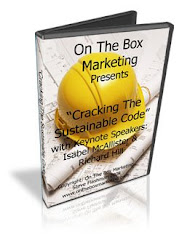There has never been a time when marketing for the construction industry was so important. However, those of us who are involved in this crucial aspect of business development are acutely aware that the industry has been notorious at making huge blunders in its marketing efforts!
On of the top five blunders people in the construction industry make when trying to grow business, is in the way it deals with prospective and current clients.
Most business development professionals recognise that all marketing for construction begins and ends in one simple principle - knowing how to build relationships.
It is at least 5 times easier to win a new contract from an existing
client than to go out and find a new one! That is not to say that we should not be extending our client base – that is essential for
ongoing company growth and to ensure a healthy sales pipeline.
However, if you are producing good quality work, you should find that 70% to 80% of your turnover comes either directly from current or past clients, or from referrals and recommendations from clients you’ve worked for. You need to spend a lot of time developing relationships with these key people – they can become your best marketing tool.
Current and past clients are like gold dust to your business. Your
existing client base also forms potential sales revenue for “back-
end” products and services.
If you have no track record with your potential client, you need to
be able to demonstrate that you are trustworthy. Endorsements and testimonials from people you have built relationships with, are crucial to substantiate this. It is also important to be available
to your prospects so that they can have a face to face meeting with you – even at the highest management level of your company. This will build confidence and reassurance because they are dealing with a real person and not just a marketing consultant with an ulterior motive!
There are many ways that relationships can be built:
- Run a Lunch Club for your project team at completion.
- Hold Continuous Professional Development Training Seminars with guest "experts" in the industry
- Promise less, deliver more
- Make sure there are open lines of communication
- Give you workforce "Customer Relationship" Training
- Distribute a high content newsletter
- Open a Social Networking forum
- etc., etc.,
As a professional "marketing for construction" consultant, I am
applying these strategies every day - and they get results!
Steve Flashman
Marketing Consultant To The Construction Industry
http://www.marketingforconstruction.com
http://www.architectsdomarketing.com
Thursday, 31 July 2008
Get The Right Appointment!
In marketing for construction, as with any other industry, getting in front of the key decision makers is crucial for the development of your business.
The most important rule about appointment-making is to sell the appointment and not the product.
Appointment-making is a skill in its own right. Some construction companies and architects for that matter, use canvassers or telemarketing staff to do this job for them. However, it is far better to use staff internally, or if you are a small family run business or sole trader, you should try to do this yourself rather than outsourcing. That way you have direct contact with your prospect from the word 'go'. It will also be very useful for you or your marketing person to combine the appointment-making with the initial researching activity.
When combined in this way it helps to build initial relationships with helpful people in the prospect organisation, and you or your marketing person can collect additional useful information that would otherwise be missed or not picked up by a separate appointment-maker or canvasser.
Sending a well written letter of introduction is a useful and often essential requirement before an appointment can be made. Generally the larger the prospect organisation, then the more essential an introductory letter will be. This is mainly because PA's and secretaries almost always suggest that any approach to a decision-maker (i.e. the boss, whose time the secretary is protecting) be put in writing first.
Bear in mind that the PA is there as a defence shield for the boss, and rightly so, or the boss would never get anything done! So for any approach to succeed in getting through to the right person, the PA must effectively endorse its credibility. Whether by writing or telephoning, the reason for wanting to meet must be serious and interesting enough, which is why researching and understanding the organisation's strategic priorities are so
crucial.
General product and service approaches do not work because they are not seen to relate or benefit the prospect's own strategic priorities. So a carefully thought-through UPB (unique perceived benefit), forms the basis of the appointment approach. If it strikes the right chord the appointment will be granted.
A good introductory letter may win an appointment without the need even to speak to the decision-maker. Remember, the PA often holds the key to achieving an appointment – she certainly holds the diary! In your contact with the PA, do not be pushy or arrogant – the door will close! You should assume that the loyalty and trust between boss and PA are strong, so you need to get him or her on your side.
A point to remember: The PA will generally try to divert the sales person's approach to a less senior member of staff. So it's important to tailor the approach to fit with the level of, and functional responsibility of the person being approached for the appointment. On occasions, the sales person will not be granted an appointment with the targeted main decision-maker, but instead will be referred by them to make an appointment with a lower ranking manager or director. If this happens it's no problem - the sales person then proceeds with the MD's or FD's endorsement to develop the situation with the lower ranking contact.
The fact that it's been referred by the MD or FD gives the sales person vital authority and credibility. Being referred down the line is fine; but trying to refer upwards for eventual purchase authorisation or budgetary approval is nearly impossible, which is why appointment-making should always aim high, with a strategically orientated proposition.
Don’t use a script – it will become your downfall. And also remember, unhappy people can’t sell. So if you are having a grumpy, bad mood day, STAY AWAY FROM THE PHONE! Do some paperwork instead until you cheer up a bit! If you always see the glass half empty, GET OUT OF SALES AND MARKETING! It’s not your thing!
So let your personality shine through and be yourself. Be professional, enthusiastic and straight-forward. Resist any temptation to employ gimmicks, jokes and flashing ties - your credibility will be undermined before you even open your mouth!
Happy sales hunting!
Steve Flashman
Marketing Consultant To The Construction Industry
http://www.marketingforconstruction.com
http://www.architectsdomarketing.com
Masterclass In Construction Marketing
The most important rule about appointment-making is to sell the appointment and not the product.
Appointment-making is a skill in its own right. Some construction companies and architects for that matter, use canvassers or telemarketing staff to do this job for them. However, it is far better to use staff internally, or if you are a small family run business or sole trader, you should try to do this yourself rather than outsourcing. That way you have direct contact with your prospect from the word 'go'. It will also be very useful for you or your marketing person to combine the appointment-making with the initial researching activity.
When combined in this way it helps to build initial relationships with helpful people in the prospect organisation, and you or your marketing person can collect additional useful information that would otherwise be missed or not picked up by a separate appointment-maker or canvasser.
Sending a well written letter of introduction is a useful and often essential requirement before an appointment can be made. Generally the larger the prospect organisation, then the more essential an introductory letter will be. This is mainly because PA's and secretaries almost always suggest that any approach to a decision-maker (i.e. the boss, whose time the secretary is protecting) be put in writing first.
Bear in mind that the PA is there as a defence shield for the boss, and rightly so, or the boss would never get anything done! So for any approach to succeed in getting through to the right person, the PA must effectively endorse its credibility. Whether by writing or telephoning, the reason for wanting to meet must be serious and interesting enough, which is why researching and understanding the organisation's strategic priorities are so
crucial.
General product and service approaches do not work because they are not seen to relate or benefit the prospect's own strategic priorities. So a carefully thought-through UPB (unique perceived benefit), forms the basis of the appointment approach. If it strikes the right chord the appointment will be granted.
A good introductory letter may win an appointment without the need even to speak to the decision-maker. Remember, the PA often holds the key to achieving an appointment – she certainly holds the diary! In your contact with the PA, do not be pushy or arrogant – the door will close! You should assume that the loyalty and trust between boss and PA are strong, so you need to get him or her on your side.
A point to remember: The PA will generally try to divert the sales person's approach to a less senior member of staff. So it's important to tailor the approach to fit with the level of, and functional responsibility of the person being approached for the appointment. On occasions, the sales person will not be granted an appointment with the targeted main decision-maker, but instead will be referred by them to make an appointment with a lower ranking manager or director. If this happens it's no problem - the sales person then proceeds with the MD's or FD's endorsement to develop the situation with the lower ranking contact.
The fact that it's been referred by the MD or FD gives the sales person vital authority and credibility. Being referred down the line is fine; but trying to refer upwards for eventual purchase authorisation or budgetary approval is nearly impossible, which is why appointment-making should always aim high, with a strategically orientated proposition.
Don’t use a script – it will become your downfall. And also remember, unhappy people can’t sell. So if you are having a grumpy, bad mood day, STAY AWAY FROM THE PHONE! Do some paperwork instead until you cheer up a bit! If you always see the glass half empty, GET OUT OF SALES AND MARKETING! It’s not your thing!
So let your personality shine through and be yourself. Be professional, enthusiastic and straight-forward. Resist any temptation to employ gimmicks, jokes and flashing ties - your credibility will be undermined before you even open your mouth!
Happy sales hunting!
Steve Flashman
Marketing Consultant To The Construction Industry
http://www.marketingforconstruction.com
http://www.architectsdomarketing.com
Masterclass In Construction Marketing
Wednesday, 23 July 2008
Will we survive the housing crisis?
Now I know it is definitely not my imagination!
In my job as a Marketing Consultant to the Construction Industry I meet architects, quantity surveyors, developers and potential clients almost every day by phone and personal contact. Every conversation I have involves a discussion on how individual businesses which depend on the viability of strong housing market, are going to survive.
It is true that the construction industry is facing tough issues right now. Over a million Americans have lost their homes in the last few months and worries about the two biggest mortgage lenders, Freddie Mac and Fannie Mae have triggered government action at the highest level. The US House of Representatives have passed a rescue bill for the housing market which will give tax breaks and other financial helps to struggling home owners.
In the UK, Prime Minister Gordon Brown continues his rhetoric extolling the virtues of prudent money management and his assurances of support for the housing market.
So what do we do?
We hold our nerve - that's what we do! And we see the bigger picture. For contractors and architects who have seen their order books diminish over the last few months, there are ways to recover lost ground and grow business even in a time of recession.
On 5th September 2008 I launch my next two eBooks "Marketing For Construction" and "Architects Do Marketing". Having enabled businesses to grow in the construction industry for many years, I have learnt a few tips and tricks that make it happen.
In fact, we could well be facing one of the biggest opportunities for growth and prosperity in the industry for many years - you just have to see the wood for the trees!
Steve Flashman
http://www.marketingforconstruction.com
http://www.architectsdomarketing.com
In my job as a Marketing Consultant to the Construction Industry I meet architects, quantity surveyors, developers and potential clients almost every day by phone and personal contact. Every conversation I have involves a discussion on how individual businesses which depend on the viability of strong housing market, are going to survive.
It is true that the construction industry is facing tough issues right now. Over a million Americans have lost their homes in the last few months and worries about the two biggest mortgage lenders, Freddie Mac and Fannie Mae have triggered government action at the highest level. The US House of Representatives have passed a rescue bill for the housing market which will give tax breaks and other financial helps to struggling home owners.
In the UK, Prime Minister Gordon Brown continues his rhetoric extolling the virtues of prudent money management and his assurances of support for the housing market.
So what do we do?
We hold our nerve - that's what we do! And we see the bigger picture. For contractors and architects who have seen their order books diminish over the last few months, there are ways to recover lost ground and grow business even in a time of recession.
On 5th September 2008 I launch my next two eBooks "Marketing For Construction" and "Architects Do Marketing". Having enabled businesses to grow in the construction industry for many years, I have learnt a few tips and tricks that make it happen.
In fact, we could well be facing one of the biggest opportunities for growth and prosperity in the industry for many years - you just have to see the wood for the trees!
Steve Flashman
http://www.marketingforconstruction.com
http://www.architectsdomarketing.com
Monday, 14 July 2008
The Rescue Operation Begins!
Here it begins! The launch of a brand new site dedicated to supporting professionals in the construction industry both in the UK and USA. It's time to say enough! Together we can find a way through this difficult economic downturn which is affecting the construction industry across the world. My free Mini-Course "Discover The Top 5 Marketing Blunders That Cripple Your Construction Business And The Proven Formulas To Build Success In A Time Of Recession!" is being launched on 1st August 2008 followed by a unique Marketing For Construction Manual packed full of resources - Launch date: 5th September. I will also be making available a Full Training Course and Marketing For Construction Membership Site.
Come back to our Blog often to see the development of these resources first hand.
So hold tight! Together we can get our industry back on track
Best regards
Steve Flashman
Marketing & Media Consultant to the Construction Industry
http://www.marketingforconstruction.com
http://www.architectsdomarketing.com
Come back to our Blog often to see the development of these resources first hand.
So hold tight! Together we can get our industry back on track
Best regards
Steve Flashman
Marketing & Media Consultant to the Construction Industry
http://www.marketingforconstruction.com
http://www.architectsdomarketing.com
Subscribe to:
Comments (Atom)




